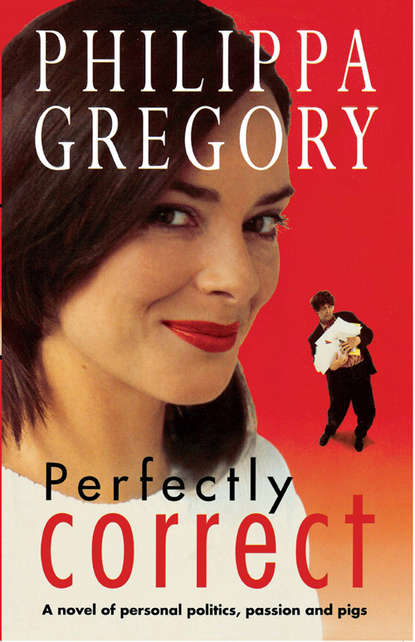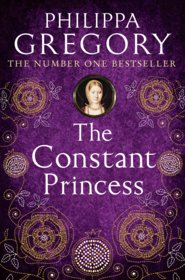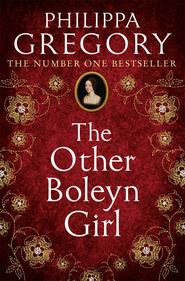По всем вопросам обращайтесь на: info@litportal.ru
(©) 2003-2025.
✖
Perfectly Correct
Автор
Год написания книги
2018
Настройки чтения
Размер шрифта
Высота строк
Поля
The van was even bigger and bluer when viewed from above. It had entered the orchard through a break in the fence which had been made in the winter by Mr Miles skidding in his Land-Rover. He had promised faithfully to mend it and Louise – a newcomer in the village, and dependent on Mr Miles to clear the lane for her should the ice turn to snow – had not reminded him more than twice. His farm was further up the lane, his grazing land nibbled into the edges of the common. This cottage had belonged to his father, and was bought from him by Louise’s aunt who had died and left it to Louise. Mr Miles regarded Louise’s improvements to a cottage ready for demolition with an indulgent eye. He had been sorry to break her pretty new fence, and intended to mend it as soon as he had the time and could buy or borrow some fencing planks. But now, the van had driven through the gap, down the grassy lane between the trees and parked, facing south to Wistley Common, with apple blossom petals showering gently around it and sticking, like damp confetti, to the battered blue roof.
The dog was lying by the steps, ears slack. Someone had placed a bowl of water beside it, and a small dustbin had silently appeared on the other side of the door. Louise watched for some minutes, but no-one came out of the van. If she wanted to see the gypsy she would have to go and tackle him direct.
She was not frightened. Years ago Louise and Miriam had attended women’s defence classes, and assertiveness training. They had temporarily become women secure in their own worth, confident of their ability to deal with men and women. Since those easy undergraduate days Miriam had faced half a dozen violent men demanding to see their wives who were living in the refuge run by Miriam. Experience had taught Miriam that the hip-and-shoulder throw was of little use against a man twice her weight, fuelled with alcohol and anger, and with a knife in his pocket. But Louise’s postgraduate life had been more select. She had never had to try the hip-and-throw technique on anyone more threatening than her instructor, and her confidence remained high. Besides, she would be on one side of her garden gate and the man would be on the other. If he were abusive she had only to walk half a dozen steps to the French windows in her study and pick up a telephone for the police and have him summarily evicted. She felt that it might be better as a police matter anyway. The man was trespassing, and would undoubtedly cause damage – breaking boughs and fouling the area. There would be litter and, if nothing worse, tyre marks in the grass. Louise had not owned a house before. She was rather fiercely proprietary about this one. Also, she believed that the countryside was an empty place, occupied only by small shy animals. That was how she liked it.
Still watching the window, she picked up the telephone by the bed and dialled Miriam’s number at the women’s refuge.
‘Hello?’ Miriam always sounded wary. For the past eight years she had been answering the telephone at the refuge and providing telephone counselling for the Rape Crisis Centre. It was very rare that she picked up the phone to hear pleasant news.
‘It’s me,’ Louise said. ‘I have the most extraordinary thing in my orchard.’
Miriam nodded at the woman sitting opposite her desk. She covered the mouthpiece with her hand. ‘I’ll just be a minute,’ she said reassuringly. The woman in her early twenties looked resigned to waiting all day if need be. She did not respond to Miriam’s smile.
‘I have someone with me,’ Miriam said suppressively.
‘There’s a van in my orchard. I think it must be a gypsy or a tinker or someone.’
‘How did he get in?’ Miriam’s interest was sharpened at the first mention of a persecuted minority.
‘Through the gap in my fence. It’s still not mended. What should I do?’
‘Is he doing any damage?’
‘Apart from being parked where I planted my meadow flower mix and spoiling the view, no.’
Miriam held back a sigh. ‘I don’t think the view really matters, does it? Or the meadow flower mix?’
‘Well, it is my orchard.’
‘Then ask him to move on.’
‘He can park anywhere on the common, or Mr Miles might let him rent a field.’
Miriam nodded, saying nothing.
‘I’ll suggest that to him.’
‘Do,’ Miriam agreed. ‘Are you coming to the meeting tonight?’
Miriam and Louise worked on an ambitious adult education project with the aim of recruiting older, preferably abused, women into university degree courses.
‘Yes. Seven o’clock, isn’t it?’
‘Yes. Come on to dinner. Toby’s cooking.’
‘Thanks,’ Louise said. ‘I will.’
She put down the phone, and went slowly down the stairs. She opened the French windows of her study and walked slowly down the garden towards the little gate which led into the orchard and from there to the common beyond. The garden was still very wild. It had been derelict when she had inherited the cottage. The little house had stood amid a sea of ferns. Heather and ling grew up to the very door, bracken made a waist-high jungle. The beloved flowers of cottage gardens, forget-me-nots, lupins, tall white iris, and blowsy tea roses sprawling into briars, extended from the cottage out into the common land until no-one could have said for certain where one began and the other ended.
In the long summer, while the builders worked slowly every week, laying a damp course, putting in drains, taking up floorboards and joyfully discovering dry rot, Toby and Louise had driven out at the weekend, with a picnic and a rug, and made love in the little wilderness which was her front garden. On those days Toby had laid his head in her lap and looked up at her face and sighed, ‘This is perfect. I wish I could stay here forever,’ which was a pleasingly ambiguous way of telling his mistress that he preferred her to his wife, and also telling her that he would never act on this preference.
Louise’s whole body, attuned to Toby over years of unequal loving, stirred at the thought of his happiness and, with the selective hearing of the long-term patient mistress, she heard his preference; but was deaf to his choice.
When the builders had finally finished in the autumn, Louise employed Mr Miles to enclose the whole plot, orchard, garden, house, with neat post-and-rail fencing which he put up, efficiently and cheaply, over four weeks, only to break it down one frosty night in the following winter when he drove home from the Holly Bush.
Louise reached her garden gate and paused. For a moment she thought of the Lawrence story which she was about to dissect in the most rigorous of terms.
The Virgin and the Gypsy was a story on the edge of pornography according to Louise’s critical vision. It depicted an adolescent girl fascinated by a gypsy who was passing her home. There was a flood, and he galloped ahead of the rushing water (Louise was prepared to be very scathing about the libidinous image of both horse and flood waters) to save her. His solution was not to build a raft or bring a boat, but instead to mount the stairs to her bedroom and there deflower her until rescue arrived.
This was a deeply flawed story as far as Louise was concerned. It showed Lawrence’s sentimentality for working people. It showed Lawrence’s male fetish of virginity since the girl was young and innocent and the man older and sexually active. There was also the sexual double standard which was only to be expected from a man such as Lawrence. But it went further even than that. It gloried in the gypsy’s mysterious maleness. Louise was prepared to be very sharp with the notion of male mystery. It was generally acknowledged among her circle that it is female sexuality which is the mystery. Male sexuality is all too transparent.
She was particularly tough on this little story, which she intended to compare to the tremulous seducto-rape scenes of so-called women’s fiction because, while she had been re-reading it last night with a pencil in her hand to make sharp little deflating comments in the margin as if D.H. Lawrence were one of her own, not very bright, students, she had been surprised by the sudden rise of sexual desire. Turning out the light, and sliding her hand down inside the pyjamas which she was forced to wear for warmth in the damp cottage, she found herself unexpectedly thinking of Mr Miles crashing his Land-Rover through her fence and how it would have been if he had been drunk with desire and not with Theakston’s Old Peculier. As she wriggled in her bed in the dark room she found her unreliable imagination conjuring an image of herself as the girl, with the gypsy galloping on his horse, with his awesome male potency, to her alone.
That was why she was so particularly angry with D.H. Lawrence in the morning. He had played, she thought, the oldest cheapest trick of all – recycling outworn sexual cliches which long years of consciousness training have not yet wholly eliminated from the female erotic imagination. All very well to say that women are fighting two thousand years of patriarchal pornographic imagery and that they will make their own fantasies anew when their imaginations are freed. All very well to say that in meetings – a different matter altogether at night when the smells of early summer wafted through the bedroom window and the owls called passionately under flaming ochre stars, and Louise’s wilful unreconstructed desires conjured the image of a man who would push her roughly on the bed and take her urgently and breathlessly without a word being exchanged.
Louise hesitated at the garden gate. It was as if her fantasy had been made manifest, summoned by desire out of the dark scented night. What if a dark head brushed the top of the door frame, and warm brown eyes met hers? What if the gypsy himself had come for her; and nothing in her life – not her long sophisticated love-affair with Toby, not her pedantic work, not her affiliation to the Women’s Movement – would ever be the same again?
For a moment she thought she would go back into the house, draw the curtains in all the windows that faced out over the common land tinged with early summer green, and wait for the gypsy to eat his lunch, and reverse – out of her orchard, through the break in the fence, into the lane and away. When she lingered at the gate, it was a succumbing to temptation akin to switching off the light and dropping the pencil on the floor. She was tempted to know who he was, this man who had driven without invitation into her orchard, into her morning, after her night filled with dreams of desire.
The van’s interior was deep in gloomy darkness. ‘Hello?’ she called.
The mongrel dog lifted his pointy head and uttered one sharp bark and then wagged his tail as if to apologise for the noise. He sat up and vigorously shook his floppy ears. Nothing else moved.
‘Hello?’ Louise called again.
The dog and Louise regarded each other, unmoving. Louise was nervous of all animals. At Mr Miles’s farm she shrank from the size and blundering folly of cows. She even feared sheep with their mad yellow eyes. This dog seemed particularly placid, but Louise dared not open the gate and approach him. The string tied to his collar was dangerously thin; it would snap if he lunged for her.
‘Hello?’ she called again.
The van rocked slightly as someone moved inside. Louise found that her breathing was shallow as if she were afraid or excited. ‘Hel-lo-o!’ she called. Whoever he was, he had heard her. Whoever he was, he was coming to the little door.
‘Hello yourself,’ came a sharp voice. ‘Is it me you’re wanting with your hello? hello? hello?’
‘Yes.’
‘Well, come in then.’
Louise hesitated. There was the garden gate, and the dog, and the dark mysterious interior of the van. ‘I just wanted to know if you planned to stay here,’ she said feebly, her voice high.
‘I’ve got my steps down, haven’t I?’
‘It’s my orchard,’ Louise pointed out.
The van shook again as if with silent laughter and then rocked more violently. Someone was coming. The dog turned its head and raised its ears in greeting. An old woman stood in the doorway, dressed fantastically in red and orange and green. She wore a wide green skirt in some stiff shiny material, an orange dirty blouse and a red shawl flung round her shoulders. Her feet, gnarled and twisted as the trunks of Louise’s old apple trees, were bare. From underneath a thatch of dirty white hair her dark blue eyes stared at Louise, unsmiling. ‘And who are you?’
‘I’m Louise Case.’
‘Where’s the old one?’












